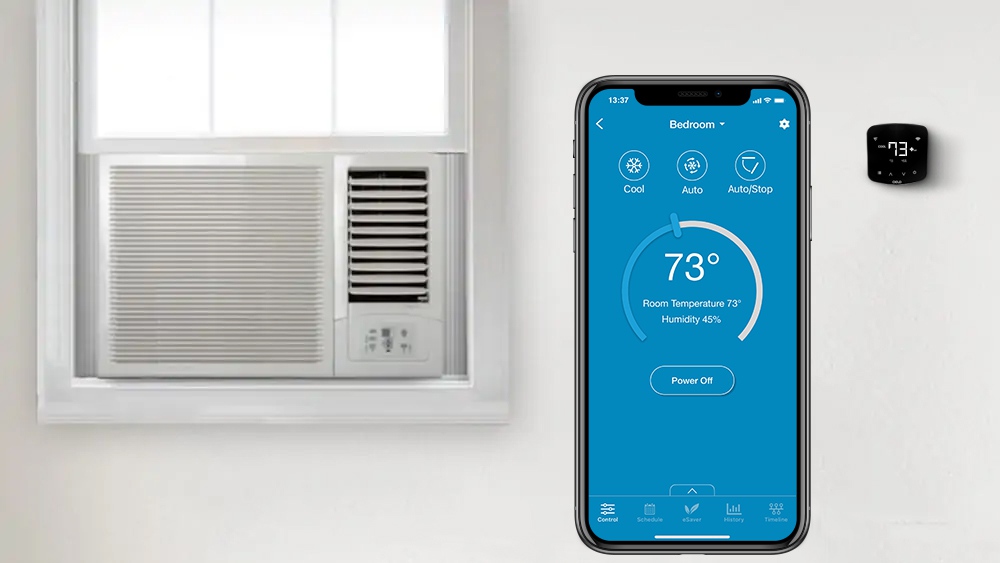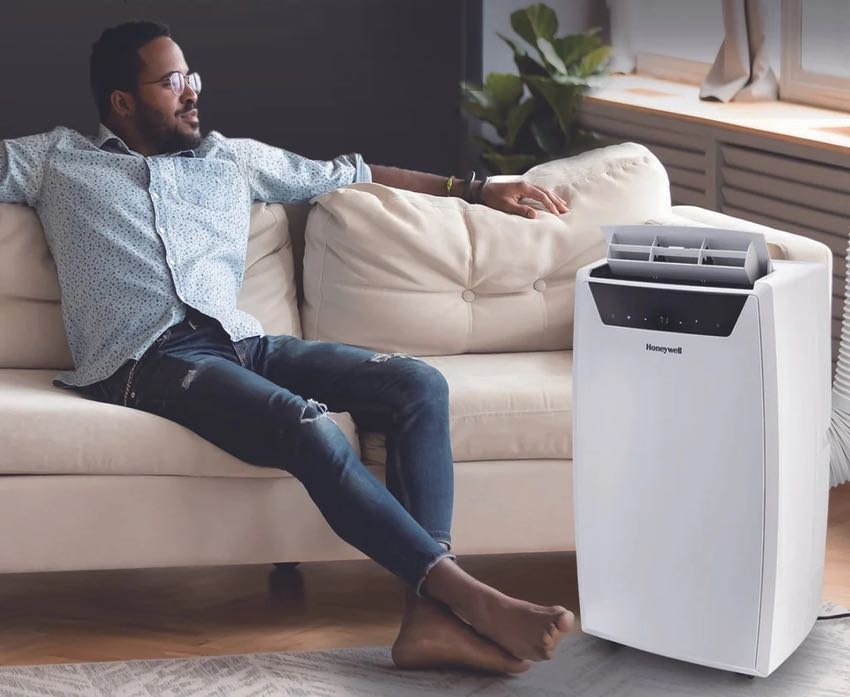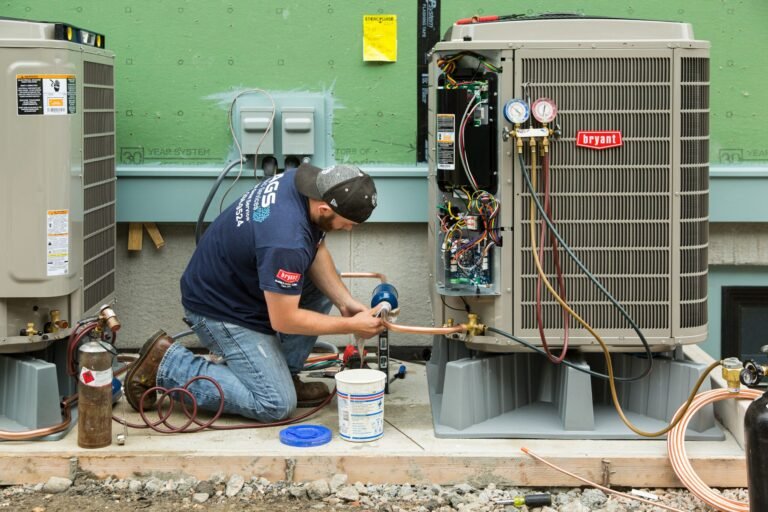What Temperature Should I Have My Air Conditioner On: The Ultimate Guide to Finding the Perfect Setting
To keep your air conditioner efficient and comfortable, experts recommend setting the temperature between 72 to 78 degrees Fahrenheit. This temperature range allows for adequate cooling without putting too much strain on your AC system.
Adjusting the temperature within this range can help maintain a balance between energy efficiency and indoor comfort during the summer months. Additionally, keeping your home well-insulated and using ceiling fans can further enhance the effectiveness of your air conditioner. Overall, finding the optimal temperature for your air conditioner will depend on your personal preferences and the climate in your area.
Importance Of Finding The Perfect Setting

One important aspect of air conditioning is finding the perfect setting for your comfort and energy savings. The temperature at which you set your air conditioner can have a significant impact on your energy consumption. By finding the optimal temperature, you can ensure both comfort and savings.
It’s recommended to set your air conditioner at a temperature that keeps you comfortable without wasting energy. The ideal temperature may vary depending on individual preferences, but generally, setting the thermostat between 72-78 degrees Fahrenheit is considered comfortable for most people.
Setting the temperature too low can lead to excessive energy usage, resulting in higher energy bills. On the other hand, setting it too high may compromise your comfort. Therefore, finding the right balance is crucial.
Additionally, it’s worth considering implementing energy-saving practices, such as using programmable thermostats that allow you to set temperature setbacks during certain times of the day when the AC is not needed as much. This can further optimize your energy consumption and reduce costs
Factors To Consider
| Factors to Consider |
|---|
| Climate and humidity levels: The temperature you should set your air conditioner on depends on the climate and humidity levels in your location. In hot and humid areas, a lower temperature may be necessary to feel comfortable and reduce humidity. In drier and cooler climates, a slightly higher temperature might be sufficient. It’s important to find a balance that keeps you comfortable without overworking your air conditioner. |
| Insulation and air leakage in the house: The insulation and air leakage in your house can affect the efficiency of your air conditioner. If your house is poorly insulated or has air leaks, you may need to set your air conditioner to a lower temperature to compensate for the heat gain. Improving insulation and sealing air leaks can help maintain a consistent temperature and reduce energy consumption. |
| Personal preferences and health considerations: Your personal preferences and any health considerations should also be taken into account. Some people prefer cooler temperatures for better sleep or to stay more productive, while others may have health conditions that are sensitive to temperature fluctuations. Consider these factors when deciding on the temperature for your air conditioner. |
Recommended Temperature Settings

Credit: cielowigle.com
The recommended temperature range for summer is typically between 72°F and 78°F. Setting the thermostat within this range can help maintain a comfortable indoor environment while also optimizing energy efficiency. It is important to avoid setting the thermostat too low, as this can lead to excessive energy consumption and higher energy bills. By setting the thermostat higher, you can benefit from energy savings and reduced environmental impact.
Setting the thermostat too low not only increases energy usage, but it can also lead to overcooling the space, causing discomfort and potential health issues such as cold and allergies. It is recommended to find a balance between comfort and energy efficiency by setting the temperature within the recommended range.
Maximizing Efficiency And Savings
| Maximizing Efficiency and Savings |
| Using Programmable Thermostats |
When it comes to maintaining the right temperature for your air conditioner during summer, it is important to strike a balance between comfort and energy savings. One of the most effective ways to achieve this is by using programmable thermostats. Programmable thermostats offer smart options and features that allow you to set temperature schedules based on your daily routines, helping you optimize energy consumption. By adjusting the temperature higher when you are away from home or during nighttime, you can save on energy costs without sacrificing comfort.
In addition to using programmable thermostats, there are other energy-saving tips and techniques you can implement. Consider keeping the temperature set around 78 degrees Fahrenheit, as this is generally considered to be the most comfortable temperature for most people. Also, make sure to seal any air leaks in your home to prevent cool air from escaping and hot air from entering. Using ceiling fans in conjunction with your air conditioner can also help distribute cool air more efficiently.
Finding The Ideal Temperature For Different Situations
Finding the ideal temperature for different situations is important for optimal comfort and energy efficiency. When it comes to sleeping, it is recommended to set the air conditioner between 65 and 70 degrees Fahrenheit to promote better sleep quality. For working or studying, a temperature range of 72 to 76 degrees Fahrenheit is usually comfortable and helps maintain focus. Furthermore, when no one is home, it is advisable to set the temperature a few degrees higher or lower than usual to save energy. This can be achieved by using a programmable thermostat that allows for temperature adjustments based on occupancy. By setting the air conditioner to the appropriate temperature for each situation, you can ensure comfort while also reducing energy consumption.
Additional Tips And Considerations
In summer, it is important to find the right temperature to set your air conditioner to ensure comfort and energy efficiency. The ideal temperature is typically between 72-78 degrees Fahrenheit, depending on your personal preference and climate conditions.
Regular air conditioner maintenance is crucial to ensure optimal performance and longevity. This includes cleaning or replacing filters, inspecting the ductwork for leaks, and checking the refrigerant levels. Performing regular maintenance can help prevent breakdowns and ensure that your air conditioner operates at its best.
Using ceiling fans can be an effective way to complement your air conditioning system. Ceiling fans create a breeze that helps cool the room and distribute the conditioned air more evenly, allowing you to set the thermostat a few degrees higher without sacrificing comfort.
Considering alternative cooling methods can also help reduce your reliance on the air conditioner. This includes using natural ventilation by opening windows during cooler hours, using window coverings to block out sunlight, and utilizing shade from trees or awnings to keep your home cooler.
You May Also Like to READ:
Upstairs And Downstairs Thermostat Settings: Mastering Optimal Temperature Control
Where is My AC Temperature Sensor? Discover the Hidden Location!
How Do Air Conditioner Temperature Sensors Work : The Science Behind Cooling
Frequently Asked Questions For What Temperature Should I Have My Air Conditioner On
Is 72 A Good Temperature For Air Conditioning?
Yes, 72 degrees is a good temperature for air conditioning.
What Should My Ac Be Set At In Summer?
During summer, set your AC temperature to a comfortable range, typically between 72 to 78 degrees Fahrenheit.
Is 74 Degrees Good For Ac?
A temperature of 74 degrees is generally considered good for AC.
Is 68 Too Cold For Ac?
68 is a cool temperature for AC, but it may be too cold for some people.
Q: What Is The Ideal Temperature To Set My Air Conditioner In Summer?
A: The ideal temperature to set your air conditioner in summer is around 72-78 degrees Fahrenheit.
Q: Can I Save Energy By Setting My Air Conditioner To A Higher Temperature?
A: Yes, by setting your air conditioner to a higher temperature, you can save energy and reduce your electricity bill.
Q: How Does The Temperature Setting Of My Air Conditioner Affect My Productivity?
A: The temperature setting of your air conditioner can significantly impact your productivity by providing a comfortable working environment.
Q: Should I Consider Buying A Thermostat That Sets Back At Predetermined Times?
A: Yes, investing in a thermostat that can set back at predetermined times can help conserve energy and adjust the temperature automatically.
Q: What Is A Set Back Thermostat And How Does It Work?
A: A set back thermostat is a programmable thermostat that allows you to set different temperature levels for specific times of the day, helping you save energy.
Q: Are There Any Recommended Brands Of Thermostats To Use?
A: There are several reputable thermostat brands available, such as Honeywell, Nest, Ecobee, and Emerson, all known for their quality and functionality.
Conclusion
Determining the right temperature for your air conditioner is essential for comfort and energy efficiency. It’s important to find the balance between keeping your space cool and minimizing your energy consumption. Based on expert recommendations, the ideal temperature to set your air conditioner in summer is between 72-78°F (22-26°C).
This range ensures a comfortable indoor environment while preventing excessive cooling that can strain your AC unit and increase your energy bills. By setting your air conditioner at this temperature range, you can stay cool without overworking your system. Additionally, using ceiling fans and keeping windows and doors closed can help maintain a comfortable temperature and further reduce energy usage.
Regular maintenance of your air conditioner is also crucial to ensure optimal performance and energy efficiency. Finding the right temperature for your air conditioner can be a balance between personal comfort and energy savings. By following the recommended temperature range and implementing energy-saving practices, you can enjoy a cool and comfortable home while being environmentally conscious.
So, don’t forget to find the sweet spot that keeps you cool and saves energy!







